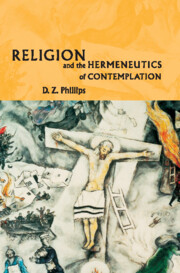Book contents
- Frontmatter
- Contents
- Preface and acknowledgements
- 1 Hermeneutics and the philosophical future of religious studies
- 2 Bernard Williams on the gods and us
- 3 Hume's legacy
- 4 Feuerbach: religion's secret?
- 5 Marx and Engels: religion, alienation and compensation
- 6 Tylor and Frazer: are religious beliefs mistaken hypotheses?
- 7 Marett: primitive reactions
- 8 Freud: the battle for ‘earliest’ things
- 9 Durkheim: religion as a social construct
- 10 Lévy-Bruhl: primitive logic
- 11 Berger: the avoidance of discourse
- 12 Winch: trying to understand
- 13 Understanding: a philosophical vocation
- Index of names
- Index of subjects
8 - Freud: the battle for ‘earliest’ things
Published online by Cambridge University Press: 03 December 2009
- Frontmatter
- Contents
- Preface and acknowledgements
- 1 Hermeneutics and the philosophical future of religious studies
- 2 Bernard Williams on the gods and us
- 3 Hume's legacy
- 4 Feuerbach: religion's secret?
- 5 Marx and Engels: religion, alienation and compensation
- 6 Tylor and Frazer: are religious beliefs mistaken hypotheses?
- 7 Marett: primitive reactions
- 8 Freud: the battle for ‘earliest’ things
- 9 Durkheim: religion as a social construct
- 10 Lévy-Bruhl: primitive logic
- 11 Berger: the avoidance of discourse
- 12 Winch: trying to understand
- 13 Understanding: a philosophical vocation
- Index of names
- Index of subjects
Summary
CONTEMPLATION OF ‘EARLIEST’ THINGS
In the last chapter, I argued that Marett's emphasis on primitive reactions might have led to a fruitful discussion of concept formation, including concept-formation in religion. It did not go in that direction because, like Tylor and Frazer, Marett held that religious beliefs are the product of confusion. His only disagreement with them, in this respect, was over whether that confusion is understood best in emotional rather than intellectual terms. Once this view is held it follows, of course, that religious concepts cannot be accepted at face value; they have to be something other than they claim to be; the confusion in them has to be unravelled. Within the hermeneutics of suspicion, religious beliefs are, necessarily, subject to this treatment.
Freud is one of the great masters of suspicion. He wanted to show that religious beliefs admit of a deeper analysis in which they would not be explained in religious terms. When we want something explained, the answers we are given are in terms which do not stand in need of explanation themselves. The explanations, when satisfactory, bring our questions to an end. We rest content in them. For Freud, we should never come to rest, in this way, in religious belief. This would be to regard religious concepts as ‘earliest things’; that is, as irreducibly basic. It would be a failure to see how things are. Thus, Freud was unable to accept Wundt's view that the root of tabu could be explained in terms of the fear of demons and those objects thought to be possessed by demons.
- Type
- Chapter
- Information
- Religion and the Hermeneutics of Contemplation , pp. 199 - 228Publisher: Cambridge University PressPrint publication year: 2001



